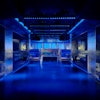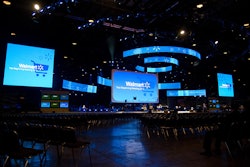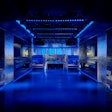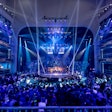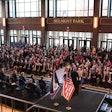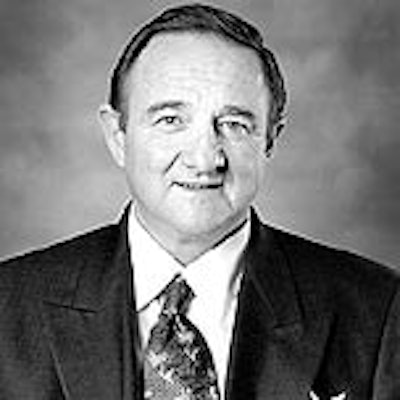
Darryl Hartley-Leonard is chairman and CEO of Production Group International (PGI), one of the largest event companies in the world. With more than 500 full-time employees, PGI has offices in 33 cities worldwide and produces more than 2,500 events a year for a roster of clients including the Coca-Cola Company, L'Oreal and Time magazine. Hartley-Leonard also spent 32 years with Hyatt Hotels Corporation, where he retired in 1996 as chairman of the board.
What is the biggest challenge facing the special event industry today?
Obviously we're coming out of a recessionary environment compounded by 9/11. After that, companies just became paralyzed. The challenge is to stay in contact with clients, and to have the resources necessary to execute events as they start to come back, which we're seeing right now. I would say business is getting back to a normal level.
How are clients' events and meetings changing?
While clients are probably spending the same dollars overall, they're having more events and smaller events. Today's events are far more focused on the message and the sales.phpect.
Are customers reluctant to spend money on events?
The event industry is relatively new in terms of awareness on the part of top executives. Traditionally companies have understood the focus on advertising and to a degree on public relations. What they're now seeing is that [an event is a] far more targeted communication. So I think there is a shift from traditional marketing into events.
How are you helping clients measure their return on investment?
In the past, you seldom got asked for a return on investment analysis. More and more we're asked now to do surveys on events afterwards, particularly on the Internet, to measure what components of the event were successful. We also measure the understanding of the message. Yes, everybody has a good time when they go to an event, but what do they get out of it?
How do your clients feel about the New York market?
There's a great emotional attachment to New York, and we see companies putting business there intentionally, particularly if they have a large presence there. On the other hand, people are worried about whether their audience will want to attend meetings in New York. I think that's dissipating, but the impact on the city has been severe. A lot of the entertainment industry and a lot of conventions said they were going to New York during the euphoria of wanting to help. But the practical reality is that there is a nervousness about being in New York, particularly while we're all involved in all these conflicts around the world.
Posted 05.28.02
What is the biggest challenge facing the special event industry today?
Obviously we're coming out of a recessionary environment compounded by 9/11. After that, companies just became paralyzed. The challenge is to stay in contact with clients, and to have the resources necessary to execute events as they start to come back, which we're seeing right now. I would say business is getting back to a normal level.
How are clients' events and meetings changing?
While clients are probably spending the same dollars overall, they're having more events and smaller events. Today's events are far more focused on the message and the sales.phpect.
Are customers reluctant to spend money on events?
The event industry is relatively new in terms of awareness on the part of top executives. Traditionally companies have understood the focus on advertising and to a degree on public relations. What they're now seeing is that [an event is a] far more targeted communication. So I think there is a shift from traditional marketing into events.
How are you helping clients measure their return on investment?
In the past, you seldom got asked for a return on investment analysis. More and more we're asked now to do surveys on events afterwards, particularly on the Internet, to measure what components of the event were successful. We also measure the understanding of the message. Yes, everybody has a good time when they go to an event, but what do they get out of it?
How do your clients feel about the New York market?
There's a great emotional attachment to New York, and we see companies putting business there intentionally, particularly if they have a large presence there. On the other hand, people are worried about whether their audience will want to attend meetings in New York. I think that's dissipating, but the impact on the city has been severe. A lot of the entertainment industry and a lot of conventions said they were going to New York during the euphoria of wanting to help. But the practical reality is that there is a nervousness about being in New York, particularly while we're all involved in all these conflicts around the world.
Posted 05.28.02

